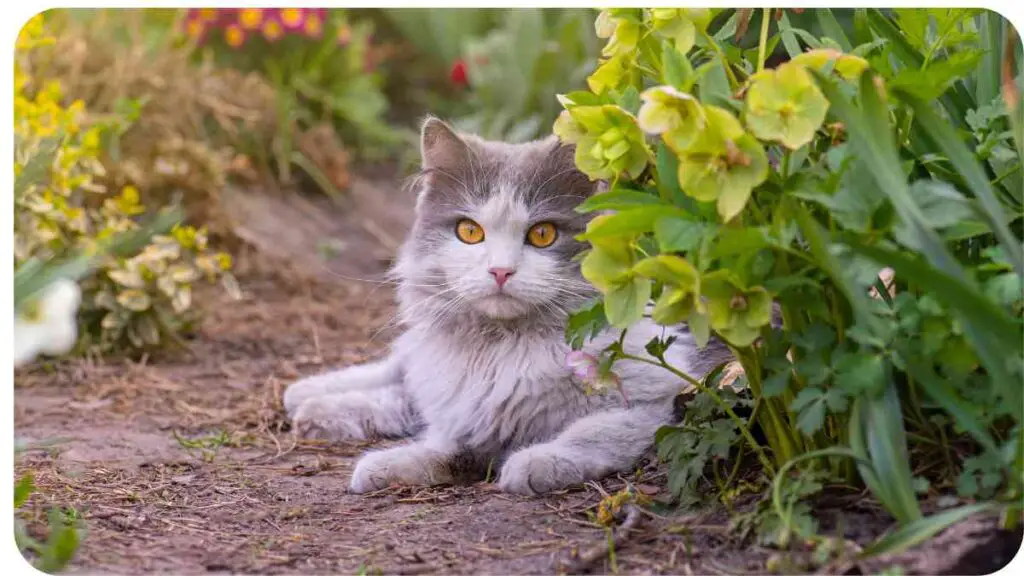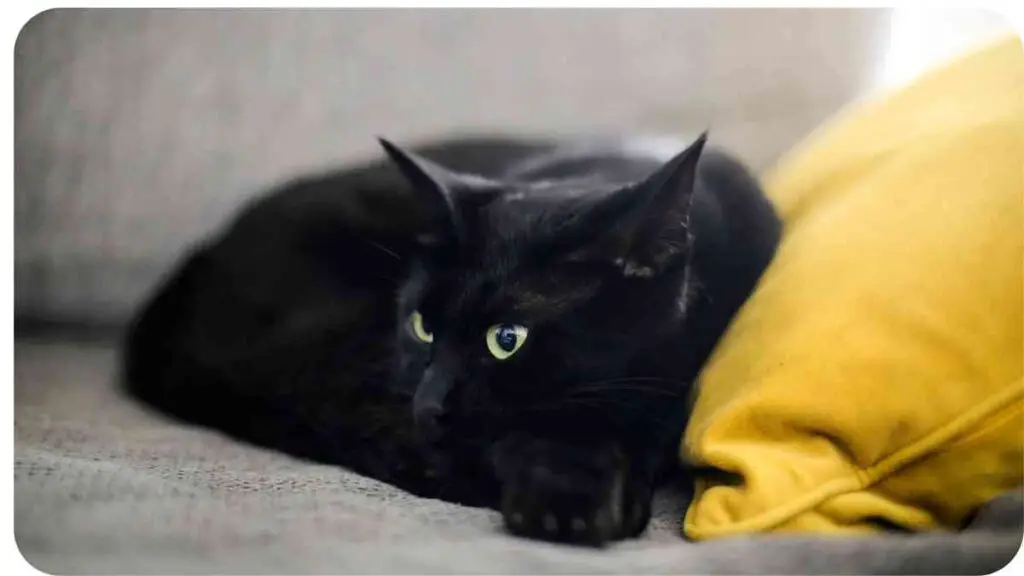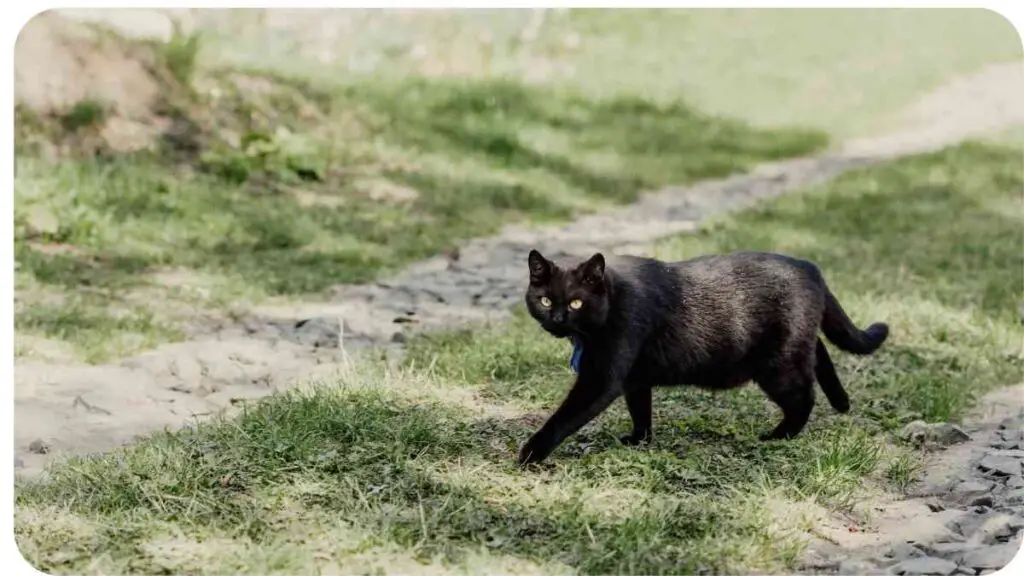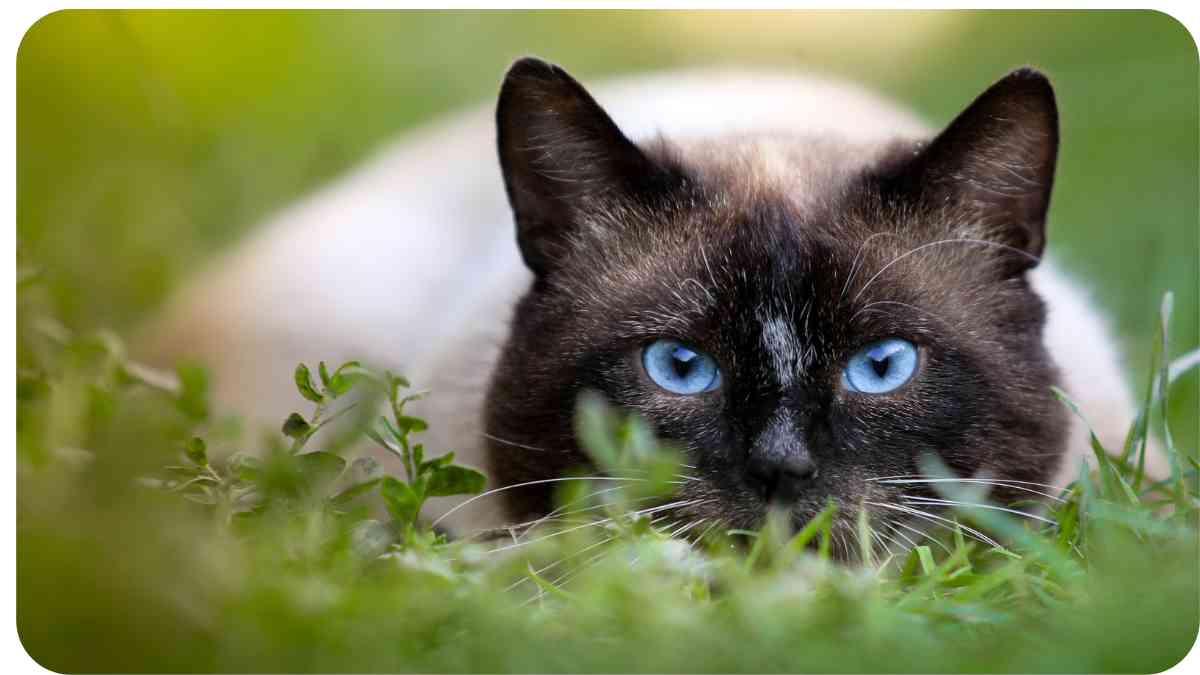Unlocking the mysteries behind Bombay cats and their hunting instincts is a captivating journey for feline enthusiasts. In this comprehensive guide, discover the unique qualities that make Bombay cats exceptional hunters and how to encourage and train them effectively.
| Takeaways |
|---|
| Bombay cats have natural hunting instincts. |
| They are known to be skilled hunters. |
| Bombay cats can chase and capture various prey, including rodents, birds, insects, and small animals. |
| While they have hunting abilities, they don’t necessarily need to hunt for their food. |
| Stimulating their hunting instincts can be done through interactive toys and engaging play sessions. |
Exercising for Sharp Instincts
Discover the key to maintaining and sharpening the hunting instincts of Bombay cats—regular exercise. Explore effective methods such as interactive play sessions and walks in wooded areas.
Learn how these activities contribute to honing stalking and pouncing skills, keeping your Bombay cat’s hunting prowess at its peak.
If you’re wondering whether Bombay cats are good with dogs, our comprehensive guide on Bombay cats’ compatibility with dogs provides valuable insights. Discover how these two different animals can coexist harmoniously and how it may influence the hunting abilities of Bombay cats.
The Art of Feline Hunting
Contrary to the notion of a casual encounter, discover the precision and strategy behind a cat’s hunting approach. While it may seem like a nonchalant brush against prey, most cats leverage their exceptional hearing and vision to spot potential targets from a distance.
This keen sensory perception activates their hunting instincts, turning seemingly mundane moments into calculated pursuits.
Exploring the Prey Preferences of Bombay Cats

Unraveling the Hunting Habits
Cats, by nature, are instinctual hunters, targeting birds, mice, and rats in their pursuit of prey. Contrary to the misconception of a casual encounter resulting in a captured mouse resembling a “feather duster” in their mouths, the reality is far more intricate.
With superior hearing and vision compared to humans, cats possess acute senses enabling them to detect prey from a considerable distance. When spotting potential targets small enough for capture, their innate hunting instincts ignite, driving them into stealthy pursuit.
Navigating the Hunting Rhythms of Bombay Cats
Dispelling concerns, the hunting frequency of your Bombay cat is a nuanced aspect, dependent on individual traits and environmental factors. There’s no need for undue worry, as the optimal hunting balance varies.
The size of your living space plays a pivotal role cats in large yards tend to engage in hunting more frequently than those residing in apartments with limited balconies. For indoor-only Bombay cats, the opportunities for prey are naturally constrained, leading to a lower frequency of hunting behaviors.
Curious about the ownership experience of Bombay cats? Our article on what it’s like to own a Bombay cat offers firsthand accounts and valuable information. Explore the unique qualities of Bombay cats that may contribute to their potential as skilled hunters.
Assessing the Mousing Skills of Bombay Cats
The Bombay cat indeed excels as a mouser, showcasing commendable skills in pest control. While their hunting prowess is notable, it may not match the specialized abilities of certain breeds.
Encouraging hunting behaviors in your Bombay cat involves various strategies. Stimulating toys resembling mice or birds, along with interactive play sessions involving laser pointers, serve to engage their natural instincts.
Mastering the Art
Bombay cats exhibit proficiency in catching birds, small rodents, and insects, showcasing their innate hunting prowess. Notably, they can capture small birds such as finches and sparrows without causing harm.
A crucial responsibility for cat owners lies in preventing their feline companions from consuming prey alive. Ensuring that your cat doesn’t eat its captured prey minimizes the risk of potential health issues, ranging from upset stomachs to poisoning.
| Bombay Cats | Catching Birds |
|---|---|
| Yes | Bombay cats have good hunting skills. |
| No | They may not be as skilled as other breeds. |
| Varied | Individual abilities may vary. |
| Training | Training can enhance their hunting abilities. |
| Supervision | Supervision is important for bird safety. |
Nurturing a Hunter

To transform your Bombay cat into a proficient hunter, training becomes paramount. While they share the same enjoyment of toys, games, and treats as other breeds, specialized training is key for honing their hunting instincts.
A highly effective method involves using a laser pointer or a similar moving toy to captivate your cat’s attention and stimulate their prey drive. Patience, consistency, and a dose of affectionate interaction contribute to the success of this training endeavor.
With dedicated effort and a nurturing approach, your Bombay cat can swiftly evolve into a skilled hunter, adept at tracking down mice and embracing its feline hunting nature.
When it comes to assessing the hunting capabilities of Bombay cats, their friendliness plays a significant role. Dive into our detailed discussion on the friendliness of Bombay cats and discover how their sociable nature may impact their hunting instincts and interactions with prey.
Training Your Bombay Cat as a Hunter
Indeed, it is feasible to train a Bombay Cat to become a skilled hunter, but initiating this process early is essential for optimal results. Starting at a young age allows for the development of hunting instincts and behaviors while the cat is still impressionable.
As Bombay Cats mature and become more independent, training may pose challenges due to ingrained habits and preferences. Nevertheless, persistence and positive reinforcement techniques can facilitate continued learning.
Rewarding your Bombay Cat for displaying interest in prey is a fundamental aspect of training. Offering treats immediately after observing hunting behaviors reinforces the association between hunting actions and rewards.
Using toys as incentives, particularly those filled with food, can also motivate your cat to engage in hunting-like activities, fostering their natural instincts.
Decoding the Disinterest
If your Bombay cat shows little to no interest in hunting, several factors may contribute to this behavior:
- Lack of Natural Instincts: Some cats may not possess the inherent hunting instincts common in other breeds. In such cases, extensive training might be required to cultivate hunting skills. If these instincts are absent, there’s no harm in allowing your Bombay to be an indoor companion without emphasizing hunting behaviors.
- Age-Related Considerations: Young Bombay kittens, still teething and bursting with energy, might not be developmentally ready to hunt effectively. It’s advisable to wait until they mature before initiating any training regimen. While most cats start hunting around three months old, exceptions exist, and some may commence earlier or later.
- Preference for Play: Your Bombay cat may simply prefer playtime with toys over hunting live prey. This choice might stem from boredom rather than a lack of skill or instincts. In such cases, engaging your cat with stimulating toys and interactive play sessions can provide a satisfying alternative.
It’s important to challenge assumptions when understanding the true nature of Bombay cats. Explore our article debunking common assumptions about Bombay cats to gain a deeper understanding of their inherent instincts and hunting potential. Don’t let misconceptions cloud your perception!
Selecting the Ideal Hunter

When determining the best cat breed for hunting, several factors warrant consideration:
- Size: Larger breeds may possess greater physical strength and agility, aiding in hunting pursuits. However, smaller breeds can also excel in hunting small prey due to their agility and stealth.
- Temperament: Cats with a more assertive and independent temperament may exhibit stronger hunting instincts. Conversely, breeds known for their gentle demeanor might display less interest in hunting activities.
- Training Commitment: The amount of time and effort you’re willing to invest in training your cat plays a significant role. Some breeds may require more intensive training to develop their hunting skills effectively.
| Cat Breed | Hunting Abilities |
|---|---|
| Abyssinian | Excellent agility and hunting skills. |
| Bengal | Strong predatory instincts and athletic abilities. |
| Maine Coon | Natural hunting instincts and excellent mousing skills. |
| Siamese | Active hunters with keen senses and vocal communication. |
| Scottish Fold | Good hunting skills and an inquisitive nature. |
Fostering the Hunter Within
Encouraging your Bombay cat to embrace its hunting instincts requires dedicated efforts and thoughtful strategies. Here are some effective ways to make your cat hunt more often:
- Provide Engaging Toys: Supply your Bombay cat with toys designed to stimulate their hunting instincts. Toys that mimic prey, make noise, or trigger interactive play sessions can captivate their interest and keep their minds sharp.
- Expand Living Space: Cats thrive on exploration, and providing them with ample space is crucial for honing hunting skills. Allow your Bombay cat more room to roam indoors during specific hours, ensuring a safe and stimulating environment.
- Outdoor Exploration: If applicable and safe, consider letting your Bombay cat explore the outdoors. This can be achieved through outdoor enclosures or supervised outings when conditions permit. Outdoor experiences allow cats to practice hunting skills and engage with their natural environment.
- Utilize Safe Household Items: Use household items, such as cardboard boxes, deemed safe for cats by reputable sources. These items can serve as makeshift toys, encouraging your Bombay cat to explore, play, and exhibit hunting behaviors.
| Point | Description |
|---|---|
| Provide interactive toys | Toys like Kong Kickeroo can engage your cat’s hunting instincts. |
| Use puzzle feeders | Trixie Activity Fun Board can stimulate their natural hunting behavior. |
| Create hunting opportunities | Set up a PetSafe Flik Automatic Teaser to entice your cat to chase and pounce. |
| Incorporate catnip or prey-scented toys | Yeowww! Catnip Banana or toys with realistic prey scents can enhance their interest in hunting. |
| Encourage playtime with feather wands | GoCat Da Bird Feather Teaser can mimic the movement of prey and engage your cat in active hunting play. |
Preventing Prey Consumption in Your Cat
To prevent your cat from consuming its prey, follow these practical measures:
- Immediate Assessment: Determine whether your cat has consumed its prey. If not, no immediate action may be necessary.
- Prompt Removal: If the prey remains uneaten, promptly remove it from your cat’s vicinity. Leaving the dead animal in the same place for too long can attract ants and other insects, posing health risks to your cat.
- Post-Consumption Care: If your cat has already eaten its prey, take the following steps:
- Offer additional food a few hours after the hunt to ensure your cat feels satiated.
- Provide access to fresh water at all times to prevent dehydration, especially after consuming prey with high moisture content.
Size matters when it comes to hunting prowess, and Bombay cats are no exception. Our informative piece on the size of Bombay cats sheds light on their physical attributes and how they might impact their hunting abilities. Discover if their size contributes to their success as hunters.
Conclusion
In conclusion, unlocking the full hunting potential of your Bombay cat requires a blend of patience, dedication, and strategic training. While the initial stages might pose challenges, it’s essential to recognize the uniqueness of each cat, each possessing its individual personality.
With the right training techniques and attentive care, your Bombay cat can evolve into an impressive hunter, showcasing its natural instincts. Embrace the journey, relishing the gradual transformation of your feline companion into a skilled and remarkable hunter.
Remember, the key lies in understanding your cat’s needs, tailoring your approach accordingly, and fostering an environment that encourages their inherent hunting behaviors.
Further Reading
Here are some additional resources to further explore the topic of Bombay cats:
Do Bombay Cats Hunt Everything? What We Know: Learn more about the hunting tendencies and preferences of Bombay cats, including the types of prey they are known to pursue.
Bombay Cat Personality: Traits and Characteristics: Discover the unique personality traits that define Bombay cats, including their hunting instincts and how it influences their overall behavior.
Bombay Cat Information: History, Care, and More: Get comprehensive information about Bombay cats, including their history, care requirements, and any specific considerations related to their hunting abilities.
FAQs
Here are some frequently asked questions about Bombay cats:
Are Bombay cats skilled hunters?
Bombay cats have natural hunting instincts, and while their hunting skills may vary individually, they are known to exhibit excellent hunting abilities.
What type of prey do Bombay cats typically pursue?
Bombay cats have a keen eye for small moving objects and are known to chase and capture various prey, including rodents, birds, insects, and other small animals.
Do Bombay cats need to hunt for their food?
While Bombay cats have hunting instincts, they don’t necessarily need to hunt for their food. Providing a balanced diet through proper cat food is essential for their overall health and nutrition.
Can Bombay cats be trained to hunt specific pests?
With proper training and reinforcement, Bombay cats can be trained to target specific pests or engage in pest control activities. However, professional guidance and supervision are recommended.
How can I encourage my Bombay cat’s hunting instincts?
To stimulate your Bombay cat’s hunting instincts, provide them with interactive toys, puzzle feeders, and engaging play sessions that mimic hunting scenarios. It’s important to ensure their safety and the well-being of other animals in the environment.

I’m Dr. Hellen James, a veterinarian who has spent her career working with cats and has seen firsthand how important it is to understand each breed’s unique needs.


